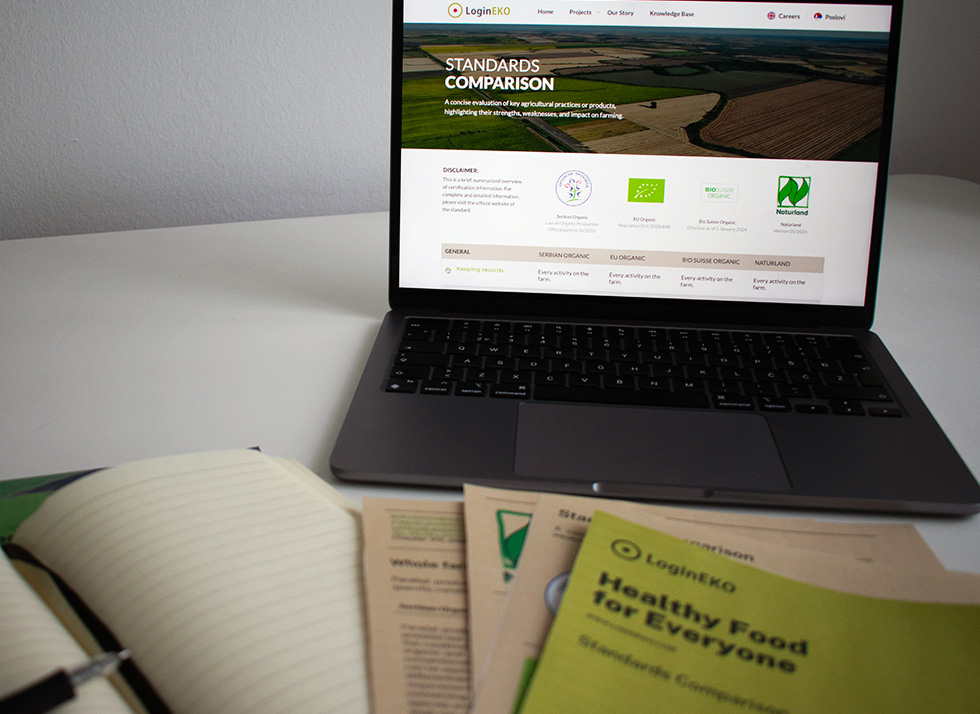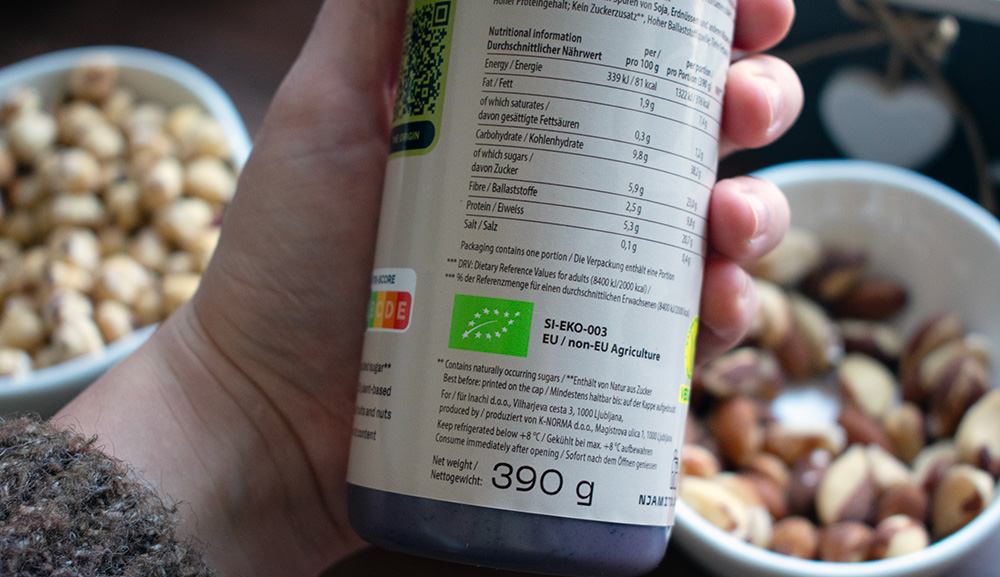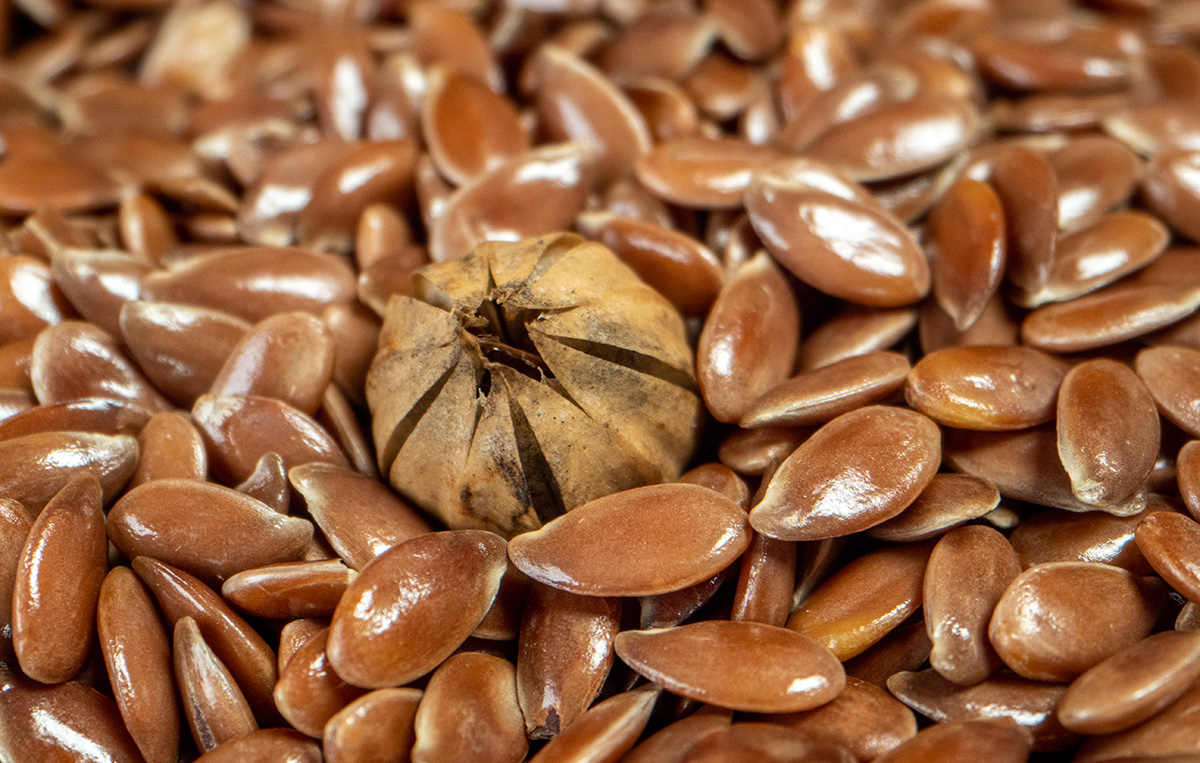2025 at LoginEKO: Building Large-Scale Organic Farming That Works
December 23, 2025A look back at 2025 at LoginEKO: large-scale organic farming results, plant-based nitrogen, open traceability, farming software, and food development.
Read articleConsidering new markets? Our comparison table breaks down Bio Suisse, Naturland, and EU standards to help farmers navigate certification requirements.

Transitioning to organic farming can feel overwhelming due to the challenges of certification, which require extensive documentation, accurate data collection, and compliance with complex regulations and differing standards across regions.
At LoginEKO, we’re certified under EU Organic Regulation (EC) No 834/2007 (soon transitioning to 848/2018), Bio Suisse, and Naturland. This hands-on experience has given us a deep understanding of the challenges and nuances involved in meeting these standards.
To simplify the process for farmers, we’ve created a comprehensive comparison table. It outlines the key requirements of each certification, offering an in-depth look at what it takes to meet these standards. Whether you’re starting your organic journey or expanding into niche markets, our guide will help you make an informed decision.
Organic standards shape a vital role in the way we produce food, protect the environment, and build trust in the food system.
On one hand, for consumers, they guarantee that food is free from synthetic pesticides, mineral fertilizers and GMOs. They also promote sustainable farming and production practices, building trust with environmentally conscious consumers and providing healthier food options.

On the other hand, for farmers, organic standards open the door to markets with high demand and premium prices. As consumers increasingly prioritize sustainable and ethical food choices, certified organic producers stand out. Certifications like Bio Suisse and Naturland, for example, add an extra layer of credibility and can command even higher value by targeting niche markets.

While organic standards share common goals, they differ across regions in terms of regulatory frameworks, conversion periods, input regulations and social and environmental responsibility.
For example:
By aligning with these high-value standards, producers can differentiate themselves in a crowded market, meet growing consumer expectations, and secure better prices.
For us, targeting niche standards has proven successful—demand remains strong, and buyers recognize the added value.
A look back at 2025 at LoginEKO: large-scale organic farming results, plant-based nitrogen, open traceability, farming software, and food development.
Read articleThe Plant Food Summit 2025 brought together Europe’s food system leaders to discuss how plant-based innovation can drive a healthier, more resilient, and future-proof food system. Here’s how they’re turning ambition into action.
Read articleThe updated EAT-Lancet report calls for urgent transformation of the global food system. Here’s what we learned at the launch and how our work supports this change.
Read article